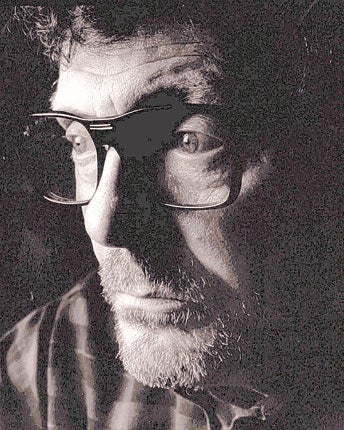John Mackenzie: Film and television director who graduated from 'Play for Today' to 'The Long Good Friday'

John Mackenzie will forever be remembered as the director of the pitch-perfect British gangland thriller The Long Good Friday (1980), but it was at the time merely his latest in an electrifying run of dramas, mostly for television. The film transported him from 13 years of glorious creative freedom at the BBC to 20 prosperous but artistically vexing ones making feature films in the US.
Born in Edinburgh in 1928, Mackenzie attended Holy Cross Academy and read history at Edinburgh University before studying drama and working in rep at the Gateway Theatre. Although a competent actor, he was frustrated at the lack of creative control, and at 32 left for London to try to become a director. Little did he know that the apprenticeship of a lifetime awaited him when the BBC offered him a job assisting Ken Loach on The Wednesday Play.
Shadowing Loach on "Up the Junction" (1965) and "Cathy Come Home" (1966) taught him to work speedily on location to achieve naturalism, and the curious power of occasionally casting people other than actors in roles. But Mackenzie preferred character-driven storytelling to explicitly political diatribes and quickly graduated first to directing half-hour studio productions, and then to gritty filmed plays such as "Mrs Lawrence Will Look After It" (1968), which was the first television drama shot entirely on location and scored The Wednesday Play its highest ever ratings.
Mackenzie also made three feature films during this period: One Brief Summer (1970), a costive study of sexual frustration, Unman, Wittering and Zigo (1971), a prickly thriller in which a new teacher discovers that his predecessor was murdered by the pupils, and Made (1972) a staggeringly grim lump of kitchen-sink drama starring the singer Roy Harper. Reflecting on these early films, Mackenzie said he was always determined to go back and get movies right one day, confessing that "Unman I'm proud of, and my wife has a soft spot for One Brief Summer, but Made was a bit of a mess."
Mackenzie's work for Play for Today was wonderfully diverse. DennisPotter's "Double Dare" (1976) wasa torrid Hitchcockian gem; the ambitious Red Shift (1978) was an adaptation of Alan Garner's perplexing novel set in three different periods, and while, tellingly, the recreations of Romanbattle scenes lacked the requisitecinematic sweep, the film containsin its contemporary scenes probably the most breathtaking depiction of teenage love ever committed to the small screen. With traumatising performances from Lesley Dunlop and Stephen Petcher as the young couple and brutish ones from Bernard Gallagher and Stella Tanner as the boy's hysterical parents, the film was proof positive that Mackenzie was at his best when dealing in the intimate rather than the epic.
In 1972 he was introduced to the Scottish writer Peter McDougall, a house painter who claimed to have never read a book in his life but who had written a script based on his boyhood experiences as a drum major in Glasgow's Orange Parades that so impressed the BBC that it was commissioned for Play for Today. The production was delayed for two years when the Glasgow police declared that it would "cause bloodshed on the streets both in the making and in the showing." Mackenzie's belief in the young writer won out when "Just Another Saturday" was finally broadcast in 1975 and won them the Prix Italia.
Mackenzie worked with McDougall three more times, on "The Elephants Graveyard" (1976), a magical two-hander starring Billy Connolly about two strangers who share a day of friendship while skiving off work, "Just a Boy's Game" (1979), their crowning achievement, which chronicled a day in the life of a violent misfit brilliantly played by blues singer Frankie Miller, and the furiously controversial "A Sense of Freedom" (1981), the true story of the Glaswegian gangster Jimmy Boyle.
It was at this point that The Long Good Friday gave Mackenzie the chance to return to cinema, although its IRA plotline initially prompted the film's nervous financier, Lew Grade, to shelve it. George Harrison's Hand Made Films came to the rescue, prompting Mackenzie to joke later that "Lew Grade seriously thought that if he showed it the IRA might bomb cinemas. He made Raise the Titanic: if anyone was gonna bomb a cinema over a film of his it would have been that one."
Mackenzie's first major motion picture was The Honorary Consul (1983). The film failed to open the right doors for him in Hollywood and it was another nine years before he was shooting material truly worthy of his talents again, with Ruby (1992), the story of the assassination of Lee Harvey Oswald. Sadly its chances of success were scuppered by the release of Oliver Stone's JFK (1991).
He claimed to have enjoyed every film he had worked on except his last, Quicksand (2003), by which time he felt that the accountants were runningthe show. He remained remarkably youthful and was blessed with atwinkling wit until his 47-year marriage to Wendy Marshall, with whom hehad three daughters, ended with her death in 2003.
When asked which of his films he was most proud of, he said "'Just a Boy's Game'. All human life is in there somewhere." A road movie on foot at gutter level and grippingly going nowhere, it showcases everything that made Mackenzie what he was: a giant of the small screen.
Simon Farquhar
John Mackenzie, film and television director: born Edinburgh 22 May 1928; married 1956 Wendy Marshall (died 2003; three daughters); died Mountfield, East Sussex 8 June 2011.
Subscribe to Independent Premium to bookmark this article
Want to bookmark your favourite articles and stories to read or reference later? Start your Independent Premium subscription today.

Join our commenting forum
Join thought-provoking conversations, follow other Independent readers and see their replies